Commies Hate Rock n’ Roll: Elvis in the Army
December 19th, 2023
8 minute read
Colonel Tom Parker was a master manipulator. When his premiere client, Elvis Presley, became eligible for the draft during January 1956, the Colonel had convinced the prospective PFC that it was possible for the young King of Rock n’ Roll to avoid the draft completely.
It wasn’t, of course, and Colonel Parker’s military planning also involved keeping Elvis out of the light duty of the U.S. Army’s Special Services. Elvis, he planned, was to serve as regular soldier, a good old American G.I.
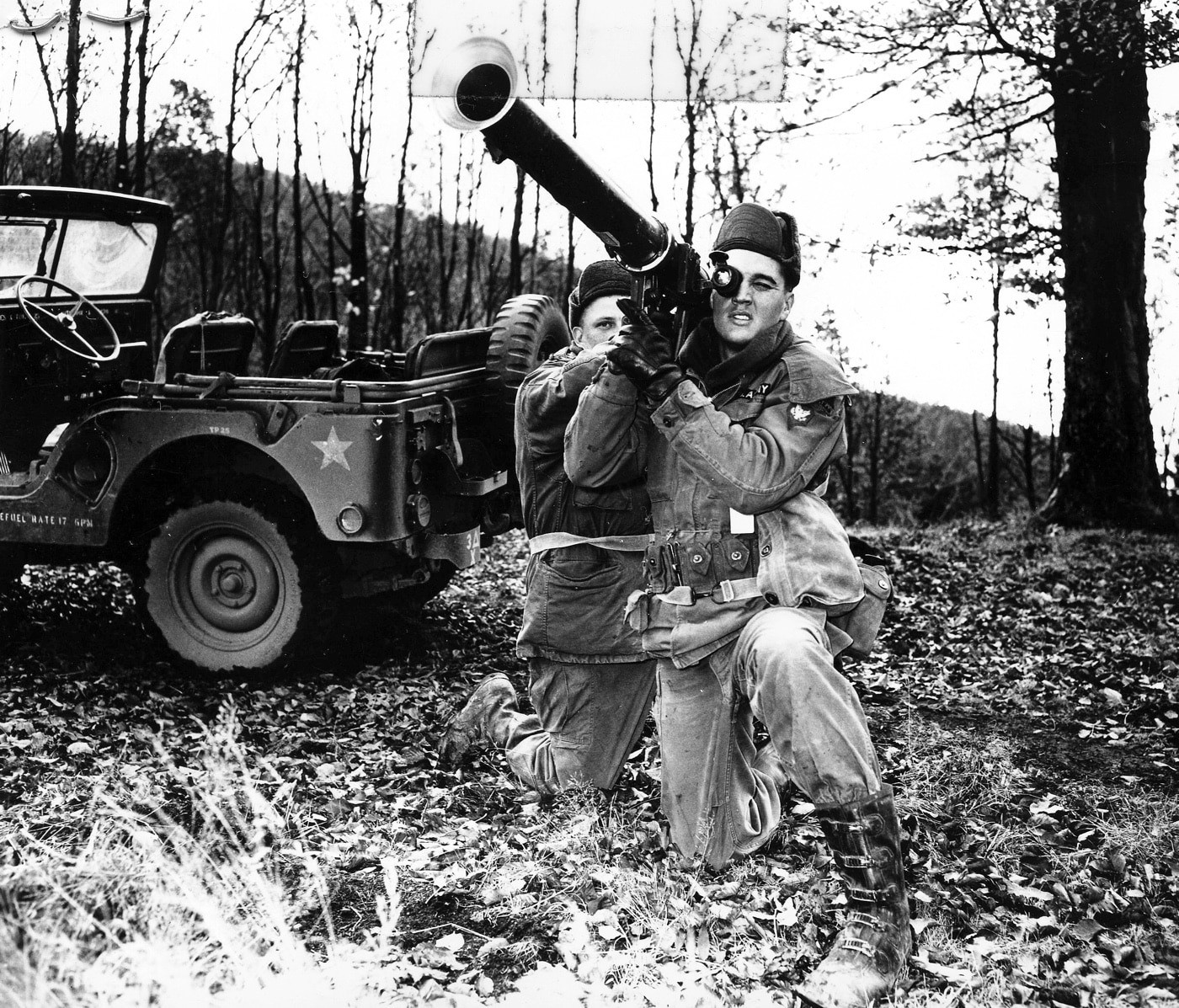
Colonel Tom’s manipulative military strategy was two-fold: Parker would never allow Presley to perform for any audience, military or civilian, when he didn’t get his manager’s cut — so joining the light entertainment duty of the Special Services was out of the question. Beyond that, he reckoned that Elvis’ service as a regular soldier would be a public relations coup, even if America’s most popular singer couldn’t see it.
With the deal made without Elvis’ consent, Presley’s induction into the Army was delayed by two months as he finished filming “King Creole” for Paramount Pictures. The film went on to be a critical and financial success, and two weeks after production wrapped, Elvis was inducted into the Army on March 24, 1958 — a date called “Black Monday” by the legions of Presley fans.
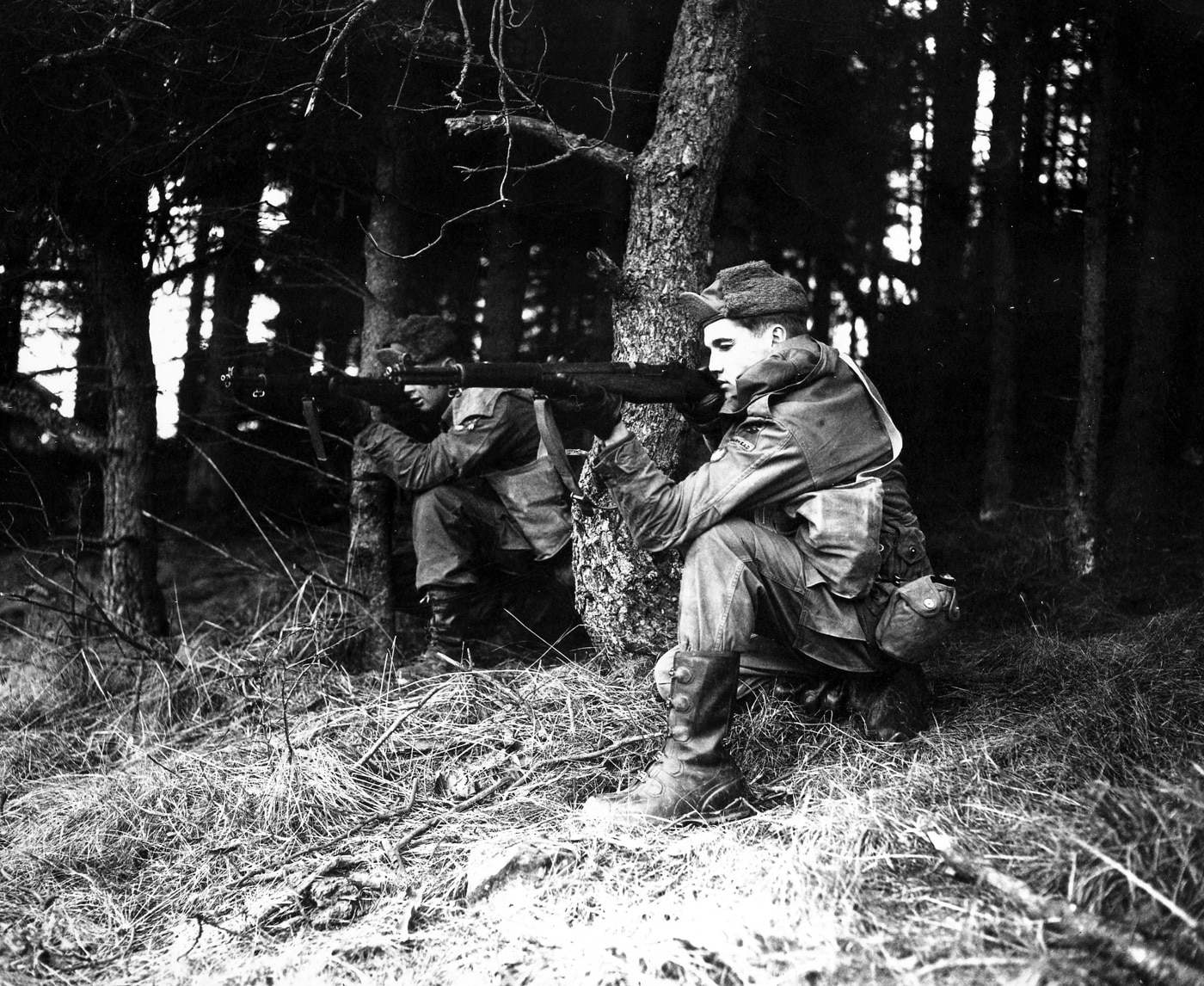
His basic training was completed at Fort Hood, Texas, where Elvis qualified as a pistol sharpshooter with the .45 caliber M1911 pistol. His training with a medium tank battalion ultimately set him up for service with the 3rd Armored Division in Germany.
Throughout his training, Elvis sorely missed his mother, and several instructors allowed him to phone home — a privilege that few other draftees enjoyed. Even so, the Army reaped the benefits of a singing superstar in their midst as a most extraordinary ordinary soldier. General Lewis B. Hershey, the Director of the US Selective Service said: “Presley is the best thing that has happened to the draft in five years!”
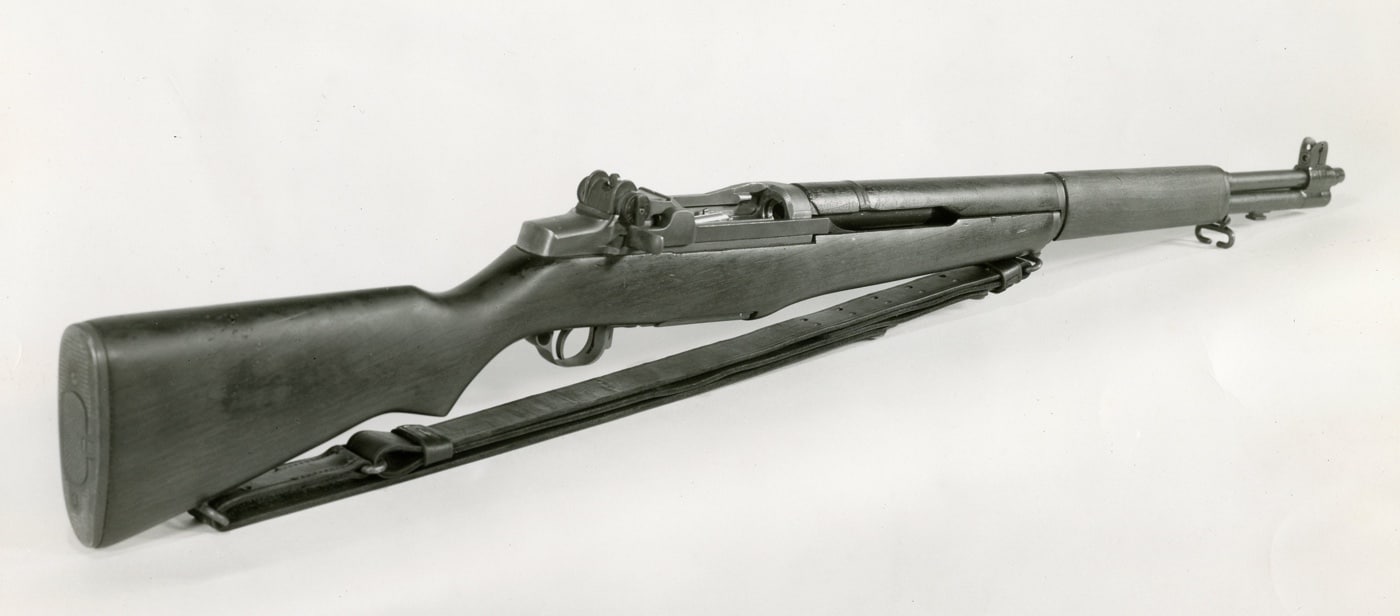
The greatest challenge in Presley’s military and professional career came on August 14, 1958, when his beloved mother Gladys passed away. Elvis requested emergency leave and was at first denied, but when he threatened to go AWOL, higher authorities intervened and granted the time off.
Presley returned to Fort Hood, on August 18th, clearly heartbroken and lost after burying his mother. Many people have come to believe that the Army gave him refuge and the discipline of immediate purpose during the hardest days of his life. In a strange twist of fate, Elvis’ conscription may have saved him from himself, and Uncle Sam stepped in to fill the void when he lost the most important person in his life.
On To Germany
“We heard rumors from the bases, that Frankfurt girls have pretty faces…”
Leaving Fort Hood, Presley shipped out for Germany on September 22nd. Once in Germany, Elvis was assigned to the 1st Medium Tank Battalion of the 3rd Armored Division at Ray Barracks in Friedberg. Described as an “armor intelligence specialist”, Elvis eventually became the driver for Sgt. Ira Jones of the Company C Recon Platoon.
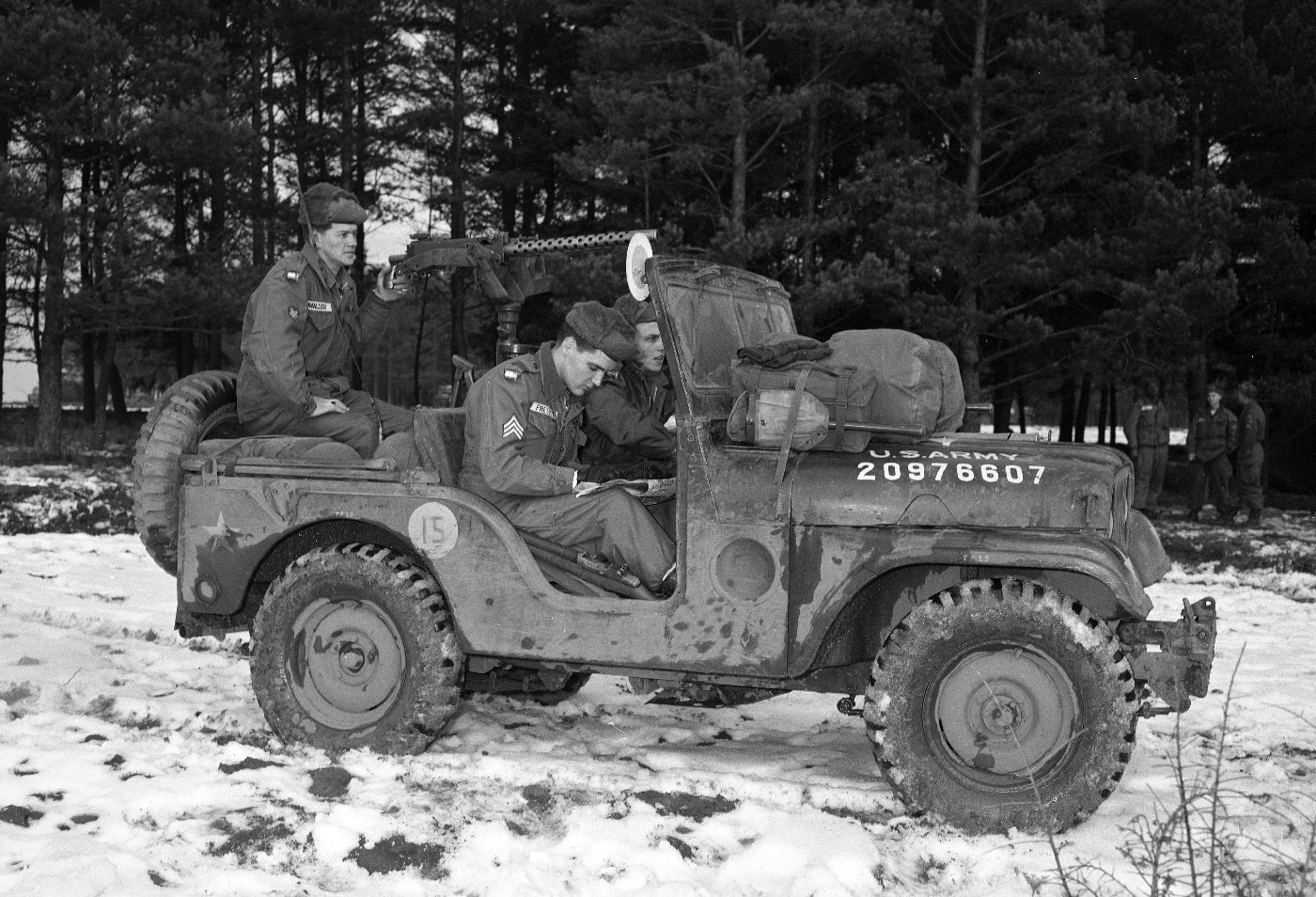
However, Presley’s life in Germany was not quite like an ordinary G.I. He was allowed to live off-post, surrounded by family members. He settled in at the Hotel Villa Grunewald in Bad Nauheim, a town close to Friedberg. Rumors of wild parties at the hotel circulated, containing some truth, but more often a great deal of fiction as the press attempted to sensationalize elements of Presley’s service. Colonel Tom Parker held a special press conference to address and dispel them.
Elvis was, by far, the leading international superstar. Alongside his homesick G.I. blues, much like every other American soldier posted abroad, Presley also worried greatly about his career, and the very real potential that he would be forgotten during his two years away. RCA records had prepared as best they could for his time away from singing full time by releasing some previously recorded material, along with some songs that Elvis recorded in his spare time in Germany.
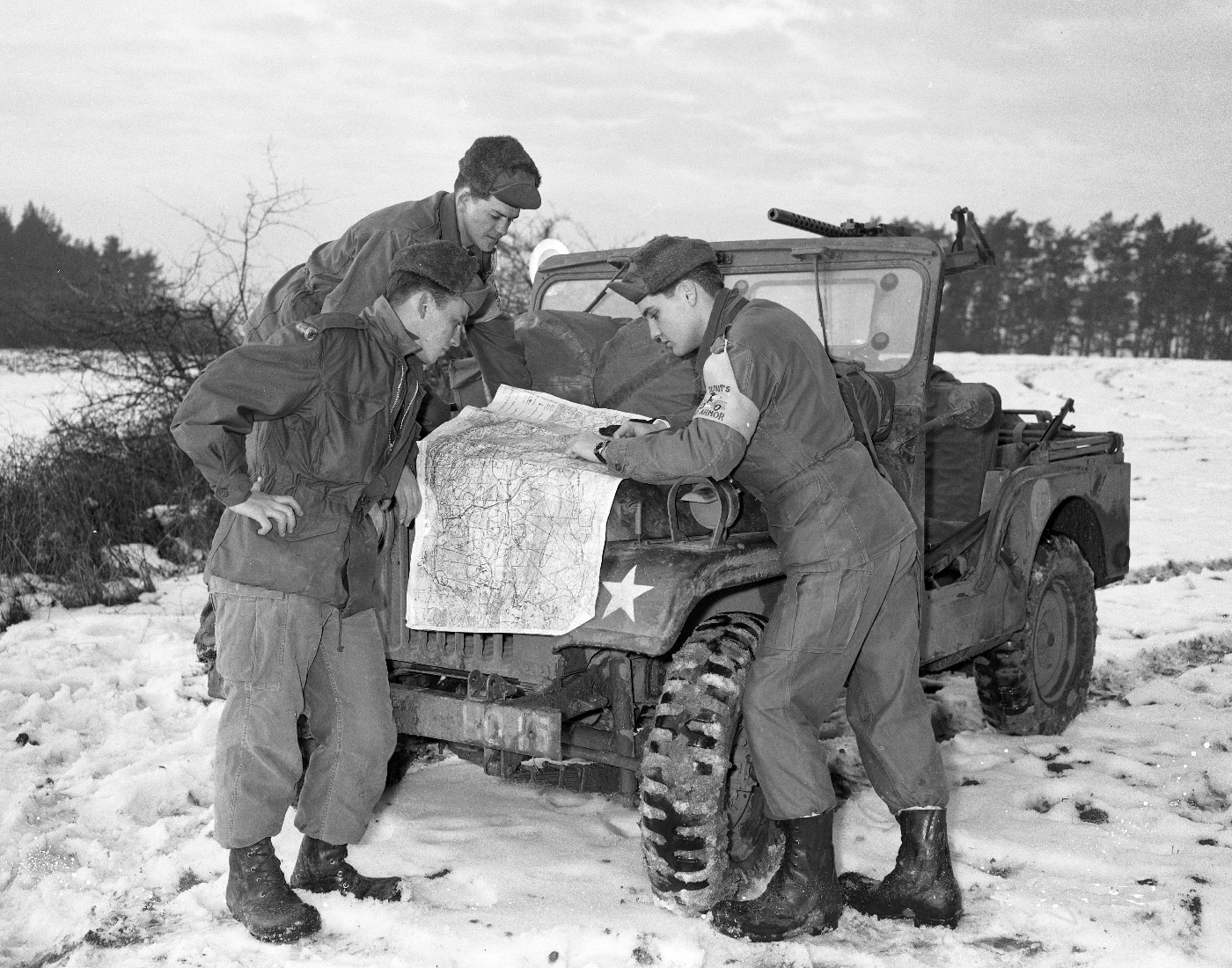
Elvis remained on the charts even while stationed in Germany, charting ten top 40 hits, and a number one record (“Big Hunk of Love” in 1959) while he was in the Army. RCA also put together four albums worth of older material during this time and managed to hit #3 on the LP charts with “Elvis’ Golden Records” during 1958.
Clearly, Presley’s service was not the same as the average American soldier. He enjoyed far greater freedom and time off than his peers — but he did serve, and he did earn his Sergeant’s stripes in early 1960.
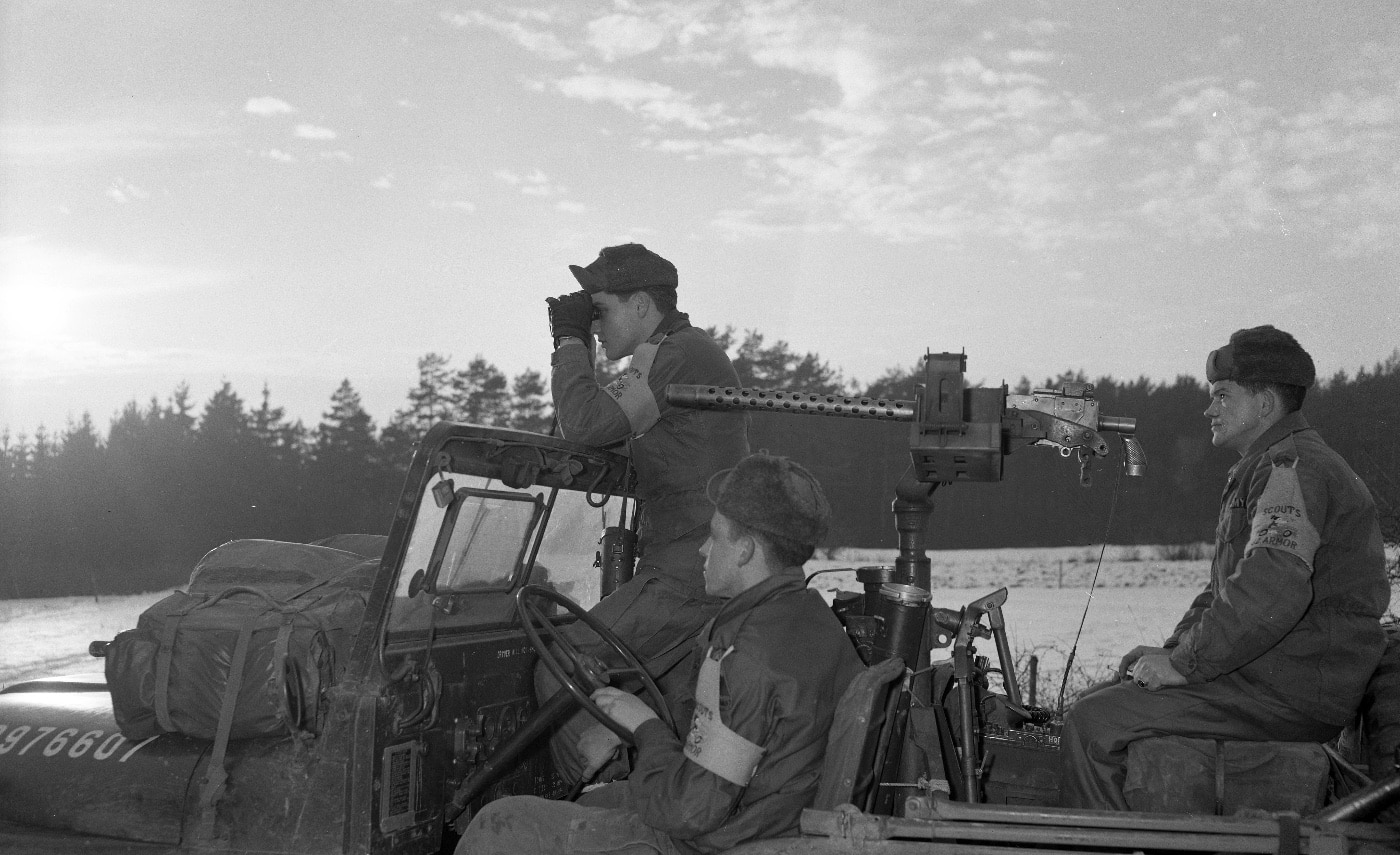
In Germany, Elvis did not ask for special privileges, but he did not turn them down when offered. The Army taught him karate, and he practiced martial arts for the rest of his life. Men from his unit have described him as a capable soldier and a generous friend to his outfit even while he donated his Army pay to charity.
Big Boots to Fill
“They know your daddy Big Boots, wherever soldiers are,
Because he can handle an armored tank, just like a kiddie car!”
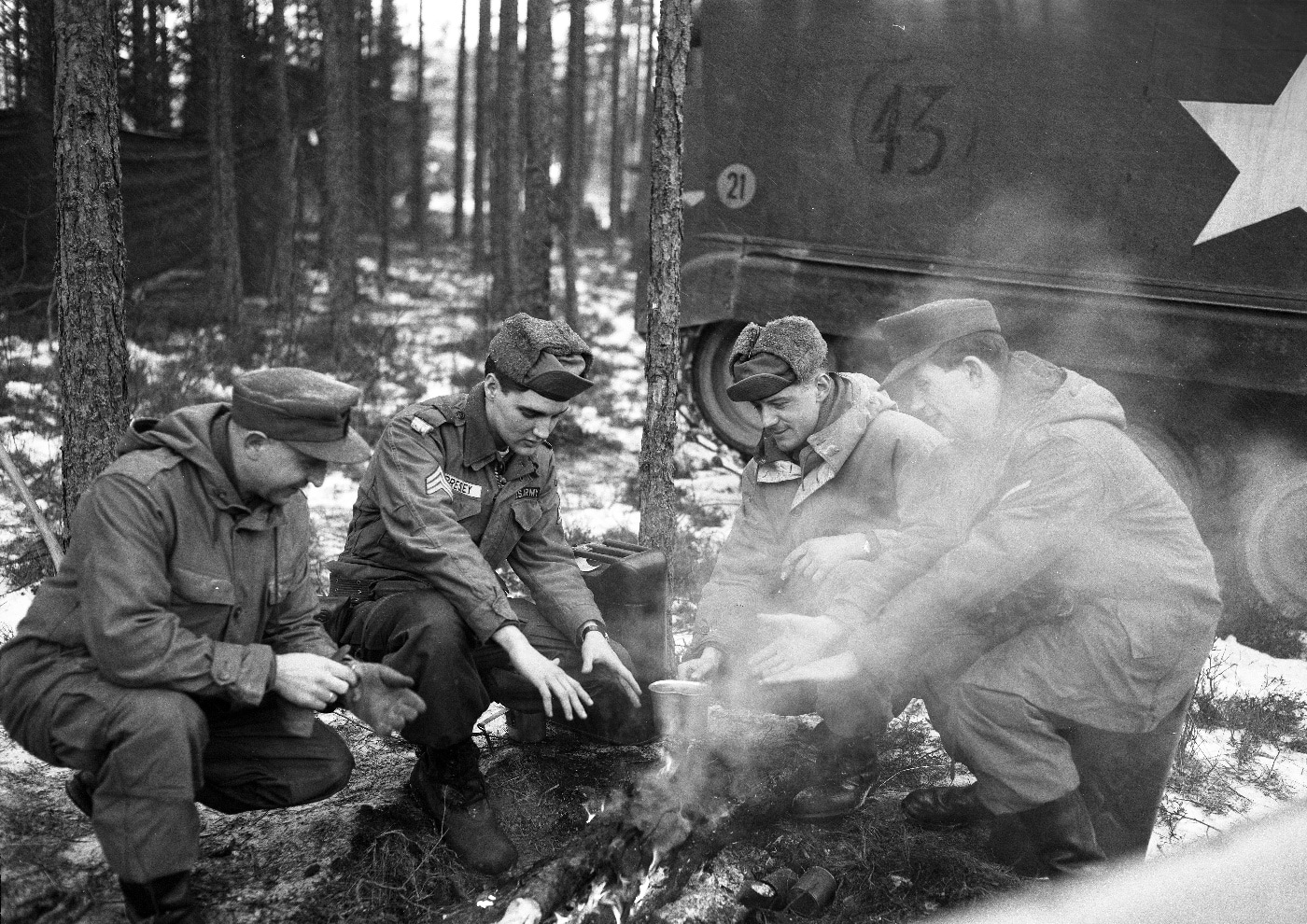
On March 2, 1960, the Army held a press conference as Elvis was leaving Germany. The young King of Rock n’ Roll was gracious as well as introspective in his comments:
“People were expecting me to mess up, to goof up in one way or another. They thought I couldn’t take it…and I was determined to prove otherwise, not only to the people who were wondering, but to myself.”
After two years out of the spotlight, Elvis was still a superstar. He was a bit older, much wiser, and a U.S. Army veteran. In the end, it was a good relationship for Presley and the U.S. Army, and a public relations victory for both.
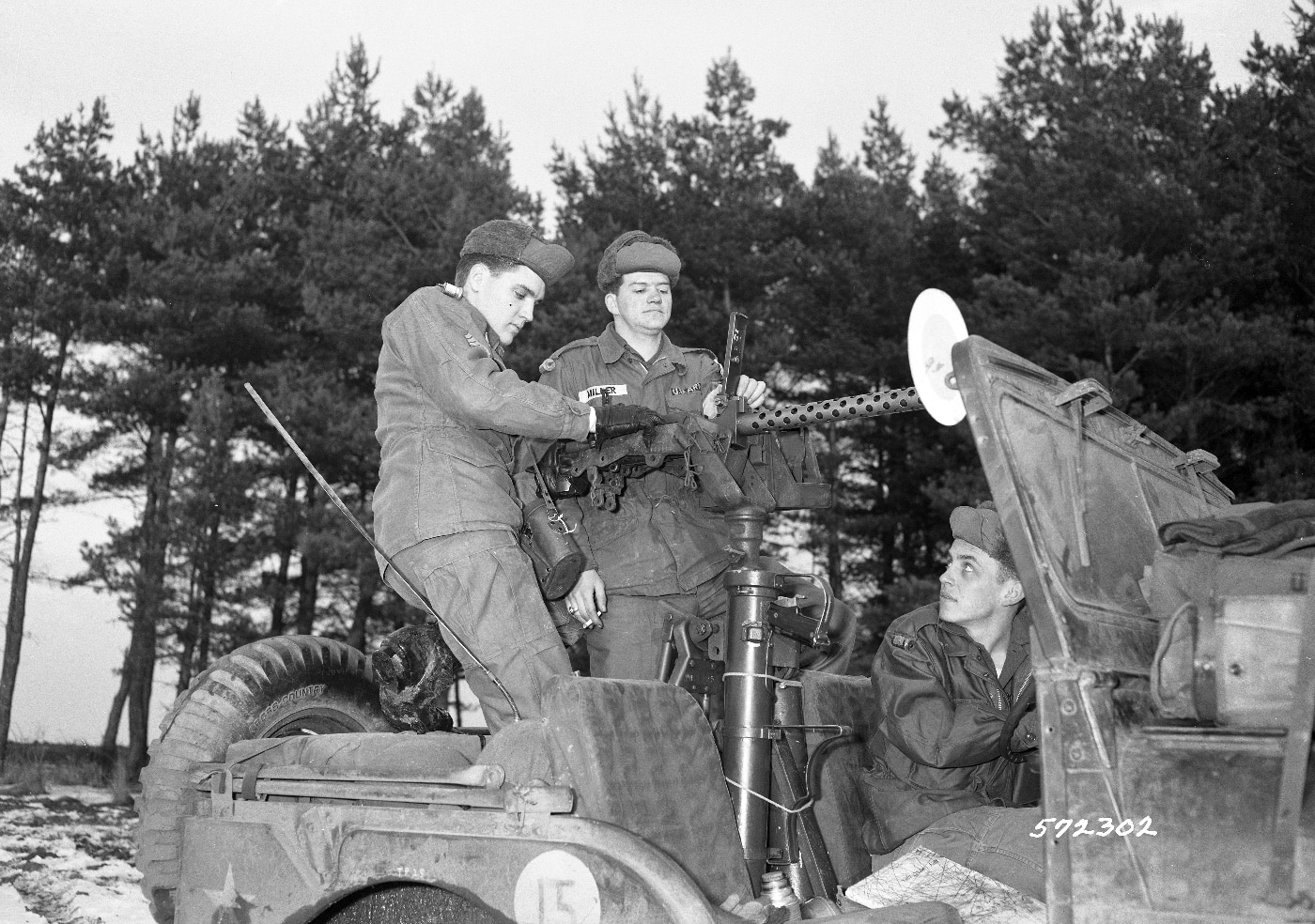
On March 5, 1960, Elvis was honorably discharged from active duty. On November 4, 1960, Paramount Pictures would release “G.I. Blues” with Elvis starring as Spec 5 “Tulsa McLean”, a rock n’ roll singer and U.S. Army tank driver based in Germany. Art would imitate life, and Elvis fans around the world were thrilled.
Elvis versus the Soviet Union
When Elvis arrived in Germany in 1958, he was one of about 15,000 men in the 3rd Armored Division. The 3rd Armored was made up of several brigades with infantry, armor, and artillery battalions, and had arrived in Germany during 1956, about a year after the Warsaw Pact created a potentially massive army of communist states on the other side of the line.
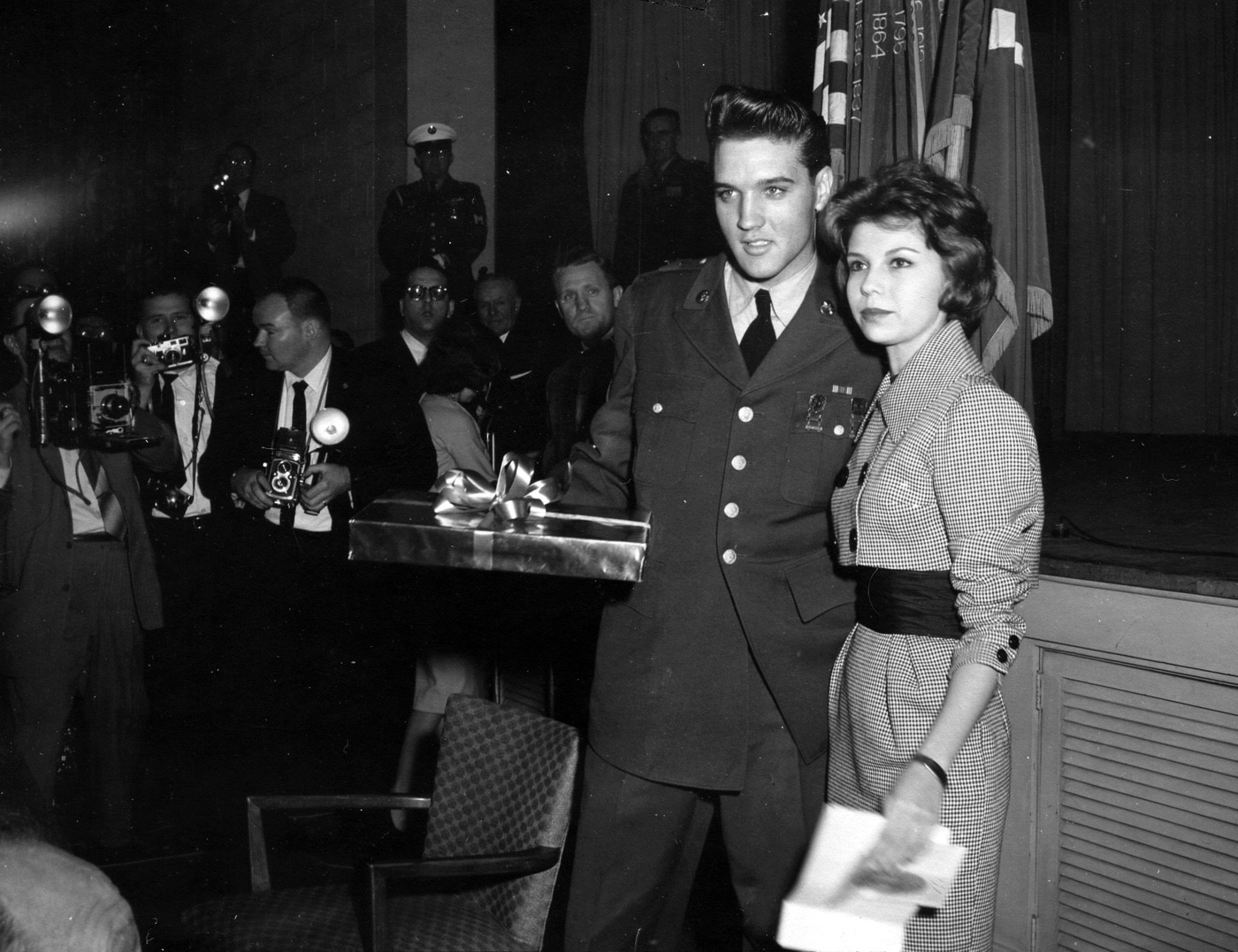
Troops from the Soviet Union, Poland, East Germany, Czechoslovakia, Hungary, Romania, Bulgaria and Albania were aligned against NATO forces defending West Germany and the rest of Western Europe. The 3rd Armored was positioned to help defend the Fulda Gap, and the American troops in Presley’s division were at a massive numerical disadvantage, facing two entire Soviet tank armies to the east.
In addition to the tremendous numerical disadvantage, American tanks were basically on par qualitatively with Soviet designs. The Soviet T-54/55 tanks were armed with a 100mm rifled gun, which gave them a slight firepower advantage over the American 90mm M41/T136 gun. Noting this, as well as the significant number of Soviet tanks positioned to attack in the Fulda Gap area, led American military planners to deploy the M-29 Davy Crockett tactical nuclear weapon launcher with U.S. forces in Germany (including the 3rd Armored Division). The Davy Crockett systems began to arrive in Germany about a year after Elvis had been discharged.
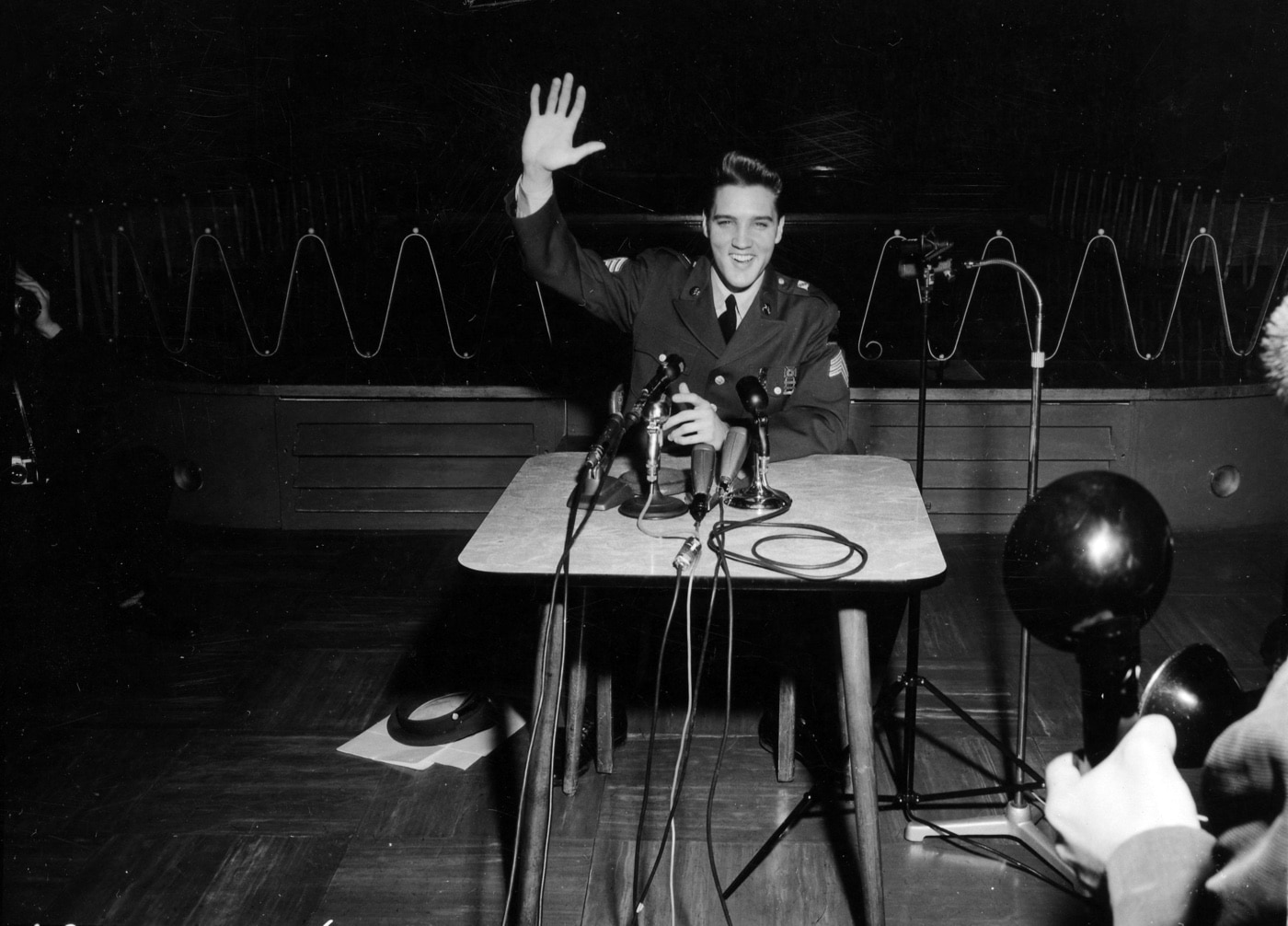
The weapons carried by Elvis Presley and his unit were quite similar to those used by American troops during World War II. The .30-cal. M1 Garand rifle was still in use, as was the .45 caliber M1911 pistol and the M3A1 “Grease Gun” submachine gun. Photos show Sgt Presley’s recon Jeep armed with a .30 Browning M1919A4 machine gun, and carrying a 3.5” M20A1 “Super Bazooka”. All of these weapons were fine examples of American technology, but they were, for the most part, at the end of their frontline service life, and were soon to be replaced by the likes of the M14 rifle and the M60 GPMG (both chambered for 7.62×51 NATO).
As Elvis left the Army in March 1960, the Cold War was still relatively cool — the Berlin Wall would not go up until the autumn of 1961, and the Cuban Missile Crisis would not occur until October 1962. The Soviet’s best chance for a conventional warfare breakthrough was probably during Elvis’ time in Germany, but the invasion never came.
Elvis passed away on August 16, 1977, and so he did not see the fall of the Soviet Union. In the end, the world survived the Cold War, and rock n’ roll, blue jeans, capitalism, and democracy triumphed over Soviet communism. And for millions of fans, even in the 21st Century, Elvis is still King.
Editor’s Note: Please be sure to check out The Armory Life Forum, where you can comment about our daily articles, as well as just talk guns and gear. Click the “Go To Forum Thread” link below to jump in and discuss this article and much more!
Join the Discussion
Continue Reading
Did you enjoy this article?

 342
342






